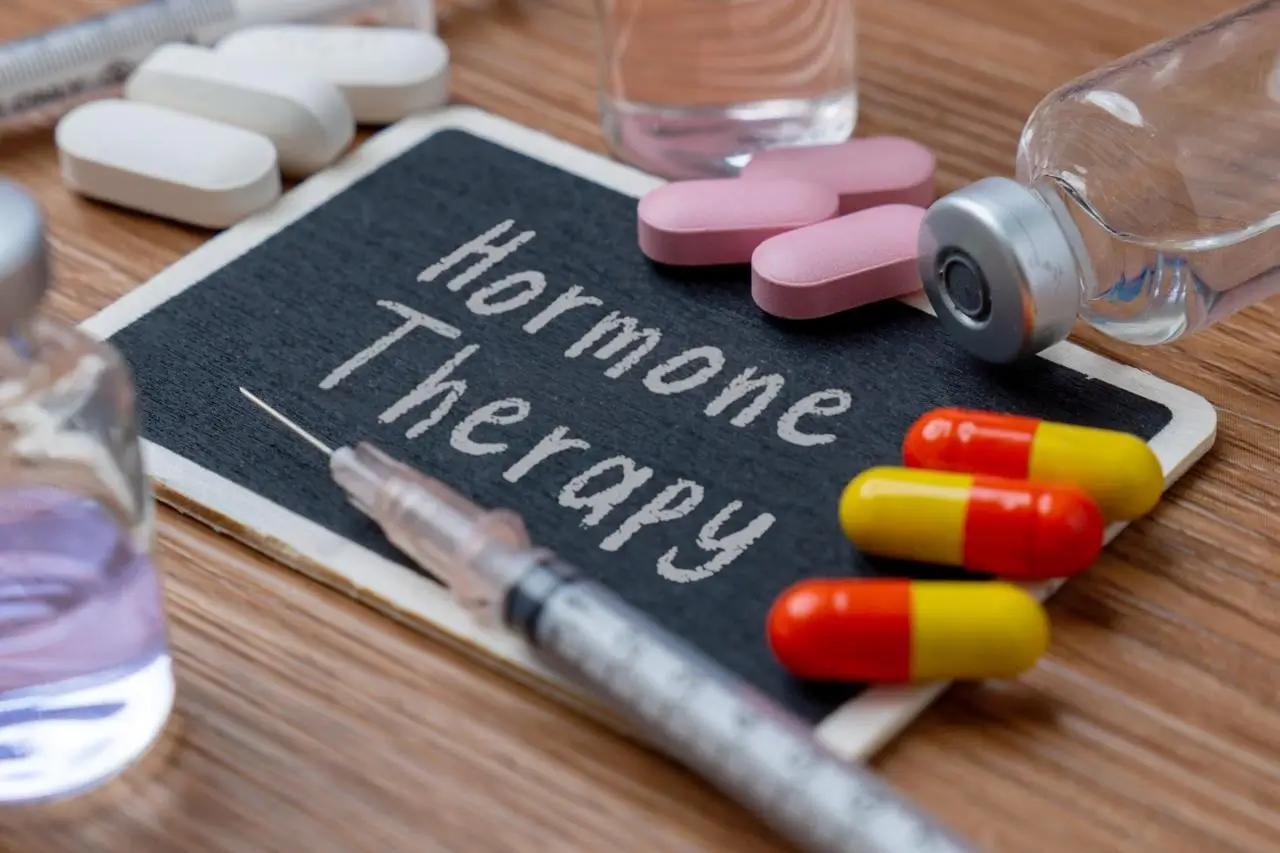

There comes a moment, often quietly, when your body whispers: you’ve crossed over. Menopause has ended. But how do you know when that moment has truly arrived? It’s not like a birthday or an anniversary—there’s no single day to mark it, no card in the mail that says congratulations, you’re postmenopausal now!
Yet, understanding what signals the end of menopause can bring clarity, reassurance, and even a renewed sense of power. This guide—rooted in the latest 2025 research and enriched with compassion—is designed to feel like a warm conversation with a trusted friend. Let’s explore what really happens when menopause ends, how to recognize it, and what this new phase can mean for you.
Menopause marks the point when a woman has gone 12 consecutive months without a menstrual period. It’s a natural biological process, not a medical condition—though it certainly brings along some uninvited guests: hot flashes, mood swings, sleep changes, and hormonal chaos.
But here’s the nuance many miss: menopause itself is just one day. Everything before that (when your cycles become irregular, when symptoms start) is perimenopause. Everything after is postmenopause. So when we ask “what signals the end of menopause?” we’re really asking: how do I know I’m postmenopausal?
The end of menopause—technically the beginning of postmenopause—is confirmed once you’ve gone an entire year without a period. That’s the simplest benchmark. But because hormone fluctuations can linger, symptoms may not vanish immediately.
Research from 2025 shows that for many women, symptoms like hot flashes or night sweats may persist for an average of 7–10 years after their final period. However, the intensity and frequency tend to fade. So, in truth, menopause ends both biologically and symptomatically—your ovaries have permanently retired from producing significant amounts of estrogen and progesterone, but your body continues to find a new equilibrium.
What doctors say: Think of menopause not as a switch, but as a dimmer—slowly fading into a softer, steadier hormonal rhythm.
It’s not always clear-cut, but there are tell-tale signs your body is settling into its postmenopausal rhythm:
Your periods have been gone for 12 months — no spotting, no irregular bleeding.
Hot flashes begin to ease — you may still feel warmth occasionally, but the sudden, overwhelming heat becomes less frequent.
Sleep stabilizes — if insomnia or night sweats kept you awake, your nights may start to feel more restful.
Mood and focus improve — many women describe a calm after the storm; emotional turbulence lessens as hormones level out.
Skin and hair find a new normal — estrogen’s decline may shift texture or elasticity, but stability replaces fluctuation.
Lab tests confirm lower FSH (follicle-stimulating hormone) volatility — while you don’t need lab tests to know you’re postmenopausal, some women find reassurance in seeing the hormonal data align with how they feel.
For most women, menopause transitions last about 4 to 8 years from the start of perimenopause to the end of the postmenopausal adjustment period. But every woman’s body has its own timeline—guided by genetics, lifestyle, and even ethnicity.
A 2025 meta-analysis found that Asian women tend to experience shorter menopausal transitions, while women of African descent may experience more prolonged hot flashes but report less severe emotional symptoms. The point? Your timeline is beautifully individual.
Here’s a simple way to visualize it:
| Stage | Typical Duration | Key Features |
|---|---|---|
| Perimenopause | 4–8 years | Irregular periods, mood changes, hormonal swings |
| Menopause | 12 months without a period | Hot flashes, night sweats, shifting libido |
| Postmenopause | Lifelong phase after menopause | Symptoms ease, bone and heart health become focus |
So while menopause technically lasts just one year, the transition—from your first irregular period to a fully settled postmenopausal state—can span nearly a decade.
Let’s be honest—this is the question everyone really wants answered.
The most common symptoms (hot flashes, night sweats, irritability, brain fog) tend to peak in late perimenopause and gradually decline in the first 2–3 years after menopause. By five years postmenopause, most women report a significant reduction in symptom frequency.
But it’s not just hormones fading—it’s your body recalibrating. Estrogen receptors in your brain, skin, and bones adapt to new baseline levels. Think of it as your body learning a new language—one of stability and wisdom, not volatility.
Tip: Keeping a symptom journal can be enlightening. Many women realize that their “bad days” lessen each month until one day they simply… stop tracking.
The average age for menopause (the final menstrual period) is 51, though it can range from 45 to 55. So, for many women, the end of menopause—or entry into postmenopause—comes in the early to mid-50s.
Early menopause (before 45) or premature ovarian insufficiency (before 40) may shift this timeline, but the same principles apply. The important thing is not the age—it’s the symptom stabilization.
Once menopause ends, your hormonal environment settles into a new steady state. Estrogen levels remain low, and this can affect several areas:
Bone health: Low estrogen can increase risk for osteoporosis. Weight-bearing exercises and calcium-rich foods become essential.
Heart health: Estrogen once offered cardiovascular protection. Now, it’s time to focus on maintaining healthy cholesterol and blood pressure.
Skin and hair: Collagen production slows, but consistent hydration and collagen-rich nutrition can work wonders.
Libido and intimacy: Some women notice changes in desire or vaginal dryness, but modern treatments (from lubricants to localized estrogen therapy) can restore comfort and pleasure.
This phase is not about loss—it’s about embracing maintenance, self-awareness, and strength.
Recent studies have deepened our understanding of how menopause ends and what supports women through it best:
Precision hormone therapy: Doctors now individualize HRT (hormone replacement therapy) based on genetic markers, reducing side effects and improving long-term outcomes.
Neuroendocrine research: Scientists are discovering that the brain’s hypothalamus undergoes a postmenopausal ‘reset,’ helping regulate temperature and mood more efficiently.
Holistic care: Integrative medicine—combining mindfulness, nutrition, and gentle movement like yoga or tai chi—is shown to smooth the late stages of menopause.
In short: modern medicine sees menopause not as a decline, but as a transformation worth honouring.
The end of menopause isn’t just a biological milestone—it’s a soulful one. Many women describe it as an awakening, a period of clarity where energy once used to manage monthly cycles and hormonal swings is now redirected toward creativity, purpose, and peace.
It’s a stage where confidence blooms differently—not from perfection, but from knowing yourself deeply.
So, if you’ve reached this threshold, celebrate it. You’ve traveled through storms of change and emerged wiser, freer, and beautifully whole.
The signals of the end of menopause are subtle but sure: your body steadies, your cycles cease, your symptoms quiet, and your spirit expands. The “end” of menopause is truly the beginning of a new phase—a redefined womanhood unbound by monthly rhythms, yet deeply in tune with life itself.
Whether you’re 45 or 60, still in the throes of perimenopause or just emerging from it, remember this: every woman’s journey is uniquely hers. What matters most is not just when menopause ends—but how beautifully you live beyond it.
Once your ovaries permanently stop releasing eggs and estrogen levels drop for good, menopause doesn’t restart. However, rare conditions like hormone-secreting tumors or medical hormone therapy can mimic premenopausal symptoms, leading some women to believe menopause has returned.
💡 Expert Insight: Dr. Liana Mendel from Liverpool, an endocrinologist specializing in women’s health, explains: “True menopause is irreversible because ovarian function has ceased. When symptoms reappear, it’s often due to other hormonal disruptions—not the ovaries coming back online.”
Studies show that even a decade after menopause, up to 25% of women continue to experience occasional hot flashes. This isn’t a hormonal ‘relapse’—it’s due to lasting sensitivity in the brain’s thermoregulation centers. Stress, caffeine, or blood sugar spikes can trigger the hypothalamus to misfire, creating a heat wave effect.
💡 Expert Insight: Neuroscientist Dr. Ana Rivera from Seattle notes, “Your hypothalamus is like a thermostat recalibrated after menopause. While estrogen helps stabilize it, once that influence is gone, environmental and emotional factors play a bigger role in heat sensitivity.”
Yes. The liver enzymes responsible for metabolizing medications are influenced by estrogen. After menopause, your liver processes certain drugs—like antidepressants, thyroid medication, and even caffeine—at a different rate, meaning doses may need to be adjusted.
💡 Expert Insight: Pharmacologist Dr. Nisha Talwar from South Delhi says, “We’re finding that postmenopausal women often respond more strongly to certain medications. Personalized pharmacology is becoming increasingly important in this stage of life.”
Absolutely. The gut microbiome—specifically the ‘estrobolome,’ a collection of bacteria that metabolize estrogen—plays a powerful role in how the body adjusts to postmenopausal life. A balanced microbiome supports smoother hormonal transitions.
💡 Expert Insight: Nutritionist Carla Mendez from North Dakota explains, “Fiber-rich foods, fermented vegetables, and probiotic cultures nourish gut bacteria that help recycle beneficial estrogens. Women who maintain gut health often report fewer lingering symptoms.”
Surprisingly, yes. Many women report bursts of creativity, focus, and mental clarity postmenopause. Neuroscientific studies in 2025 show increased prefrontal cortex activity in postmenopausal women, correlating with improved problem-solving and imaginative thinking.
💡 Expert Insight: Psychologist Dr. Miriam Chao from Singapore says, “When the hormonal fluctuations settle, mental energy once spent managing cycles becomes available for deeper concentration and self-expression. It’s as if the mind finally exhales.”



 ×
×

